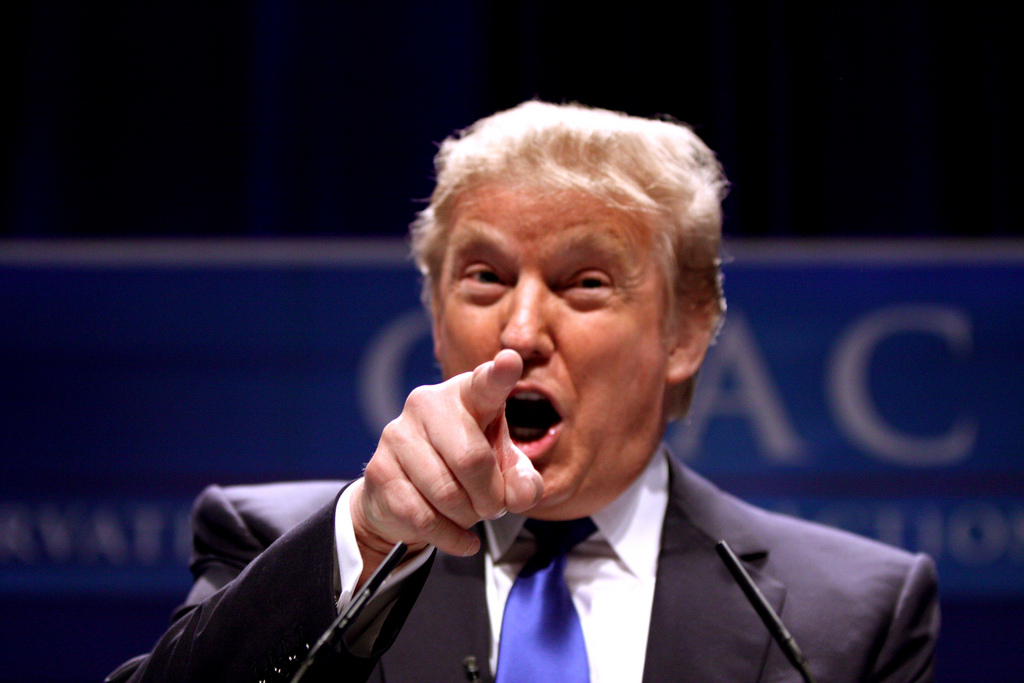Donald Trump’s bellicose and confrontational approach to everything and everyone he deems a threat to him and his perceived interests has made him infamous – or radical, depending on your viewpoint – in the 2016 presidential elections to date.
However, in one area he has consistently sought to cast himself as a pragmatist who never strays from what he perceives America’s foreign policy interests to be, namely dealing with authoritarian states whenever it suits his perception of what America’s national interests are.
Claiming to be an opponent of the unpopular Iraq War (2003-11) before it started (the record clearly shows he wasn’t) Trump has portrayed the likes of former Iraqi dictator Saddam Hussein, and more recently the late Libyan dictator Muammar Gaddafi (whose overthrow he also called for at the time), as odious and brutal dictators who nevertheless confronted “killed terrorists” and shouldn’t have been deposed by American military power.
Trump has also denounced American alliances overseas, portraying the NATO alliance as an entangling one that has unnecessarily put America at risk of being dragged into foreign wars he believes they have no real interest or stake in. He also doesn’t believe that other members of the alliance are “paying their fair share.”
Similarly, on the Korean peninsula this has seen the Republican nominee even suggest he would be open to withdrawing US forces from South Korea if Seoul does not enlarge its defense budget – a call that has been welcomed in North Korea.
Trump has even gone so far as to say he is prepared to meet with North Korea’s leader Kim Jong Un (who he described as “like a maniac” who nevertheless deserves “credit” for his ruthless liqudation of his political enemies) to discuss issues of bilateral importance, indicating a willingness to overcome the many contentious issues between Washington and the hermit kingdom through diplomacy. He is likely calculating it would be best to reach some kind of an accommodation with that unpopular power through diplomatic channels (likely through Beijing, which has significant leverage over Pyongyang) rather than maintaining the six-decade-old status-quo of simply trying to contain that country through sanctions and militarily help the South protect itself.
Whether he will be able to pursue such radical overhauls of longstanding American foreign policy in Europe and Asia if he becomes the next occupant of the Oval Office has of course yet to be seen.
It’s worth remembering that when George W. Bush was a governor he endorsed a very isolationist foreign policy, seeing foreign entanglements and involvement in various alliances as something that wasn’t necessarily in the national interest. As president, he would go on to be involved in attempts at nation-building in Iraq and Afghanistan, claiming that the September 11th 2001 attacks changed everything, including his prior view.
Non-interventionist and even isolationist tendencies became significantly more popular among a population sick of these lengthy and costly wars. Trump seems to be trying to harness these feelings of discontent and use them not only to win more votes but also to demonstrate to the strongmen of the world that a Trump administration would be more open to dealing with them wherever mutual interest is involved.
It’s therefore no surprise that both Russian strongman Vladimir Putin and the aforementioned Kim Jong Un have made kind remarks about him, with Putin calling him “talented” while he was described in Pyongyang as a “presicient presidential candidate.”
While Trump has made clear he is ready to wave the carrot before the stick when it comes to certain authoritarian powers he has made clear he has no hesitation to use the stick if necessary.
When Russian planes aggressively buzzed US warships in the Baltic Sea Trump told Fox News that had he been president he would have called Putin and urged him to relent from such activities so as not to spoil a mutually beneficial relationship between the two powers. If the Russians persisted in such action of course Trump has said the commander-in-chief of the US would have to shoot them down.
Trump has proven wildly inconsistent and incoherent to date his various stances on how to deal with authoritarian countries in recent months are surely indicative of the kind of policy he will try and pursue if he becomes the 45th President of the United States.
Photo: Gage Skidmore/Creative Commons

